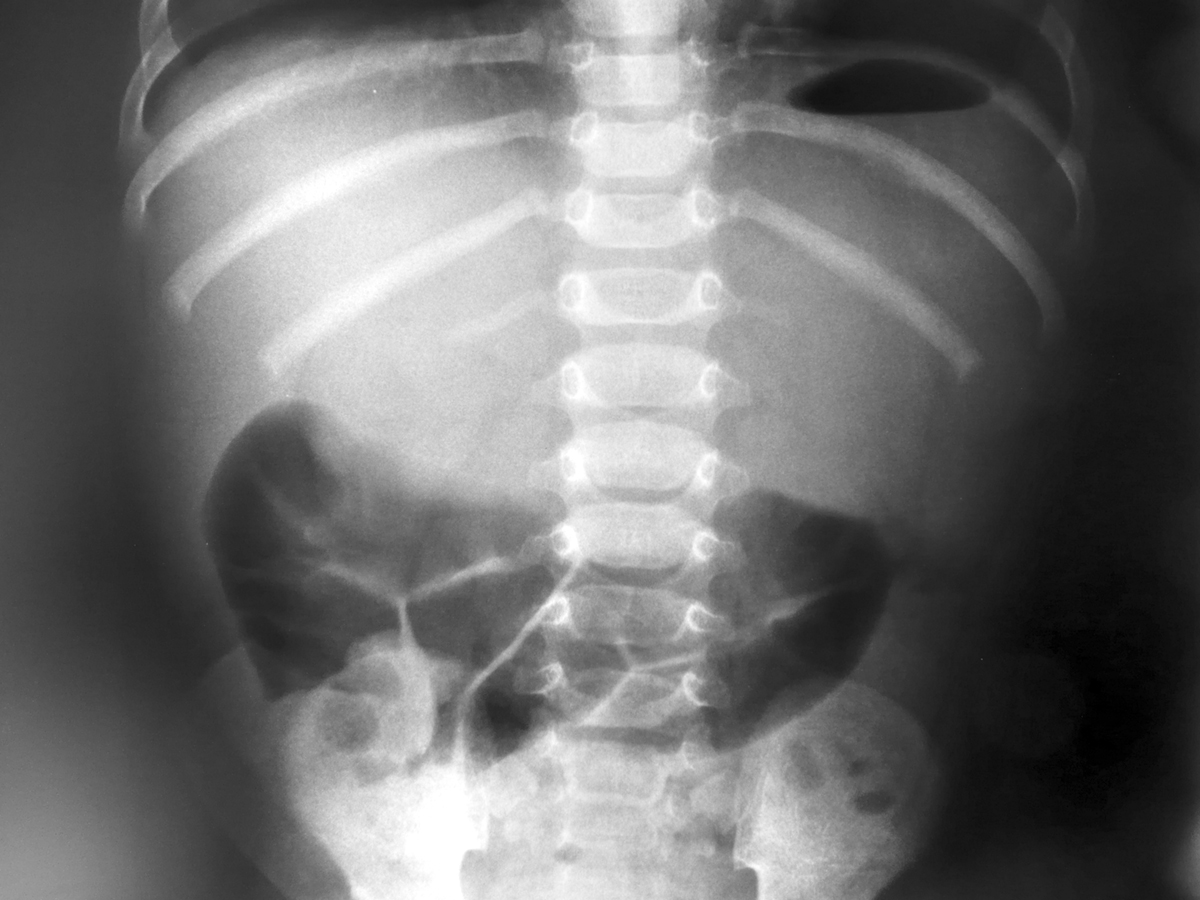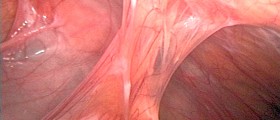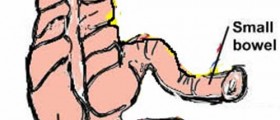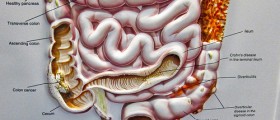
Bowel obstruction or intestinal obstruction is a state of blockage in the small or large intestines. Depending on the place of the blockage the symptoms may vary a bit but they are generally very similar.
The obstruction stops the passage of the food and liquids. As for small intestines the causes are mainly intestinal adhesion or hernias. Tumors can lead to the state as well. Additionally it can develop as a result of intussusceptions of the parts of small intestines (the state when one part of the intestines impresses into the wall of another part but without perforating it), volvulus or abnormal twisting of the intestines, inflammations or scaring. As for large intestines tumors are the main causes of the state. Additionally it can result from diverticulitis, volvulus, impacted feces, strictures, intussusceptions, and even blockage by a swallowed object. Previous surgeries in the abdomen and pelvis can be cause of the bowel obstruction. In this case strictures that develop as the consequence of the first surgery can lead to secondary obstruction.
The condition is followed by pain. The pain can and does not have to be located on one area of the abdomen. It is dull or sharp, and can start from one point and irradiate towards other areas. Pain is basically intermittent and if it increases it can point to the interruption of blood supply in the intestines. If pain vanishes out of the blue it may point to the intestinal rupture. Patient has nausea and vomits and depending on the place of blockage the content and color of the vomiting mass may point to the place of blockage. If it is green usually the upper parts of small intestines have been affected. Dark and brownish color usually indicates the involvement of lower parts of the intestines, especially colon. Additionally a bloating occurs. This results in special acoustic phenomena (gurgling sounds) which can be heard by stethoscope. A diarrhea or constipation can occur, second one more often. Together with constipation patient has difficulties with passing gasses. Diarrhea occurs in case of partial blockage. Abdomen is swollen and tender.
The state requires hospitalization in most of the cases. Non complicated cases are treated with enemas and medications administer in order to open the blockage. Bowel obstruction is basically treated surgically. It is usually urgent since the prolongation can lead to rupture and peritonitis which is a serious complication. Additionally the blockage can lead to cut of blood supplies to parts of intestines which can result in necrosis.

















Your thoughts on this
Loading...